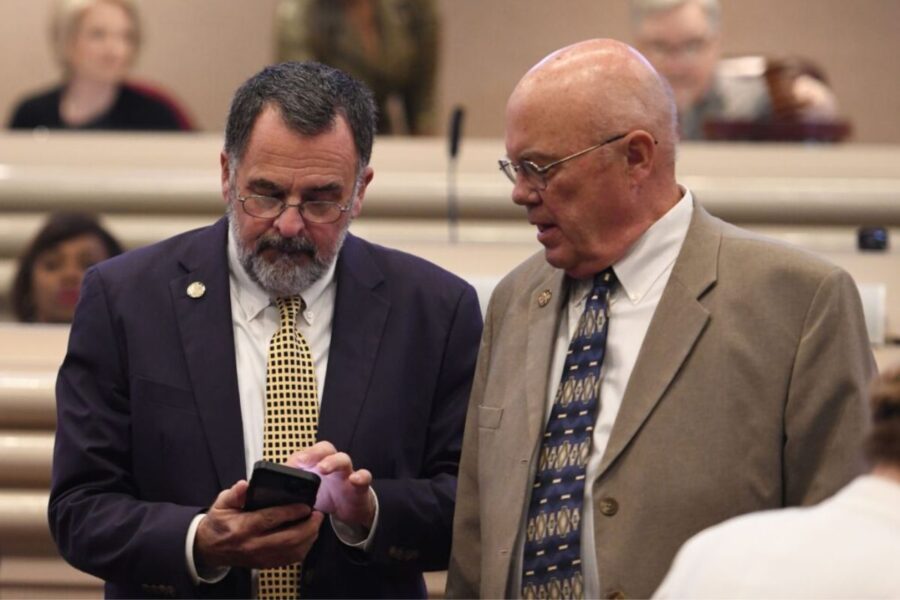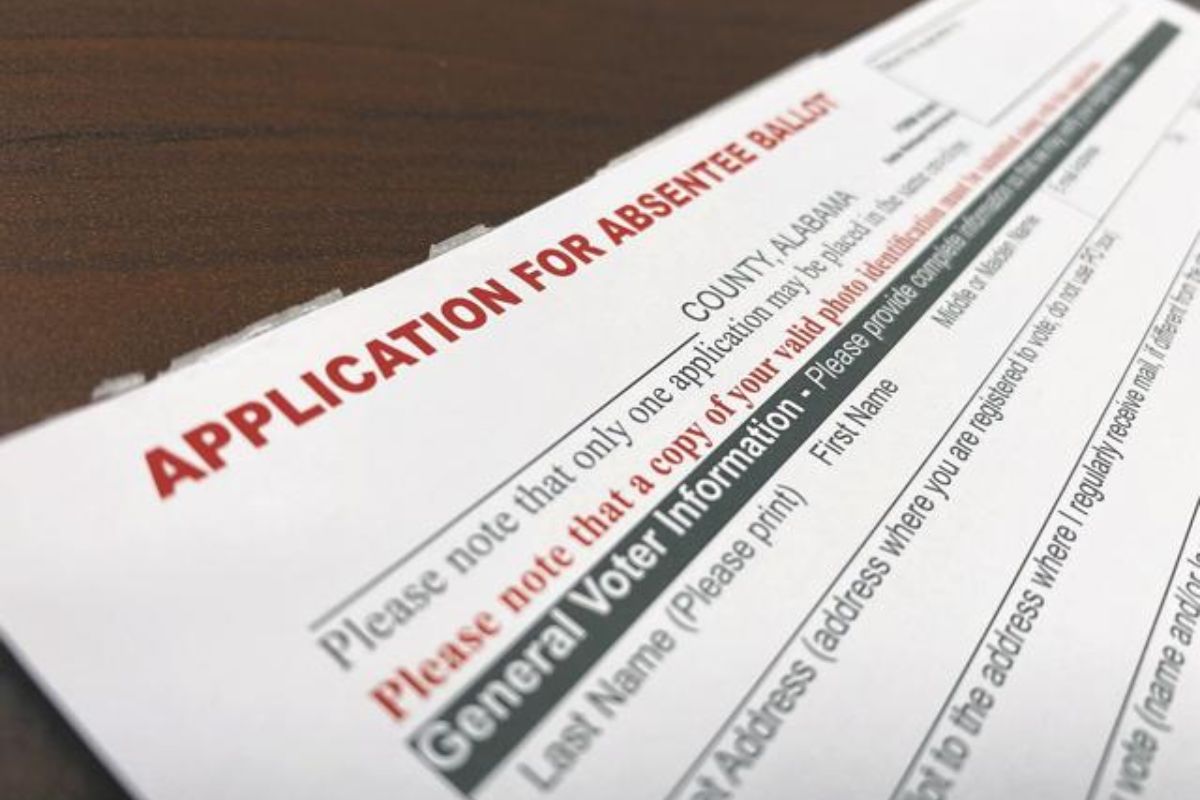Alabama Senate Absentee Voting Rules: The recent approval of SB1 by the Alabama Senate has ignited a contentious debate surrounding absentee voting regulations.
The bill’s focus on restricting assistance to absentee voters has sparked concerns over potential disenfranchisement and the imposition of severe penalties.
As legislators weigh in on the necessity of such measures to combat voter fraud, an array of perspectives emerges, highlighting the complexities of safeguarding electoral integrity while ensuring voter accessibility.
The implications of this legislation on voter outreach efforts and the divergent opinions on the role of absentee voting in the democratic process underscore the multifaceted nature of this evolving debate.
Key Takeaways
- SB1 approval raises concerns over potential voter intimidation and decreased volunteer engagement.
- Legislators clash on the balance between preventing fraud and ensuring voter access.
- Impact on voter outreach feared, with potential negative consequences for voter education and participation.
- Diverse opinions on SB1’s effects: supporters emphasize security, while critics worry about barriers to voting.
Alabama Senate Passes Bill Restricting Absentee Voter Assistance
The recent approval of SB1 by the Alabama Senate marks a significant step in restricting absentee voter assistance within the state. Sponsored by Sen. Garlan Gudger and passed with a 27-8 partisan vote, the bill aims to address concerns about election integrity, particularly focusing on preventing ‘ballot harvesting.’
SB1 permits voters to seek help for reasons such as blindness, disability, or an inability to read or write, ensuring that those who genuinely need assistance can still access it. However, the legislation does set limitations on the extent of aid that can be provided, seeking to curb any potential misuse or undue influence in the absentee voting process.
Notably, exemptions are outlined for individuals covered under the Uniformed and Overseas Citizens Absentee Voting Act, as well as those facing out-of-state emergencies. As SB1 moves to the Alabama House of Representatives for further consideration, the debate surrounding the balance between facilitating voter access and preventing fraud continues to unfold.
Controversial Penalties Raise Concerns
Significant concerns have been raised regarding the proposed penalties outlined in the recent Alabama Senate absentee voting legislation. Critics and lawmakers alike are questioning the potential impact of these penalties on voter behavior and participation. Here are three key points to consider:
- Potential Voter Intimidation: The misdemeanor penalties for activities like returning someone else’s absentee ballot application could inadvertently instill fear in voters. This fear may dissuade individuals from seeking help with the absentee voting process, ultimately affecting voter turnout.
- Volunteer Deterrence: The suggested felony charges related to payments concerning absentee ballots may discourage volunteers from offering assistance to voters. Volunteers play a crucial role in supporting individuals, especially those facing barriers to voting, and the fear of legal repercussions could hinder their willingness to help.
- Overall Impact on Participation: There is a concern that the severity of the proposed penalties could have a chilling effect on overall voter participation. If voters perceive the legislation as punitive rather than protective, it may undermine trust in the absentee voting process and deter individuals from engaging in elections.
Legislator Perspectives on Voter Fraud
Connecting the concerns raised regarding the proposed penalties in the Alabama Senate absentee voting legislation to the current discourse on voter fraud, legislators offer varying perspectives on the necessity and implications of the bill.
Sen. Gudger supports the bill, asserting that it addresses issues like ‘ballot harvesting’ and citing instances of voter fraud, particularly in Alabama’s black-belt counties. He points to the substantial increase in absentee votes, suggesting a 400 to 500% surge in some areas, which he believes could indicate fraudulent activities.
On the other hand, opponents argue that the current safeguards are adequate in preventing voter fraud and express concerns that the proposed legislation might impede legitimate voting efforts. This divergence in opinions reflects the broader debate surrounding the balance between ensuring the integrity of the electoral process and preserving access to voting rights.
As the discussions continue, the implications of these perspectives on the proposed absentee voting rules in Alabama remain a subject of intense scrutiny and deliberation.
Concerns Over Impact on Voter Outreach
How might the proposed Alabama Senate absentee voting legislation impact voter outreach efforts in the state? Concerns have been raised regarding the potential repercussions of SB1 on voter outreach. Here are three key points to consider:
- Criminalization of Volunteer Efforts: Kathy Jones, President of the League of Women Voters of Alabama, fears that SB1 could criminalize the valuable work of volunteers who educate voters on their rights and help with absentee ballot applications. This could discourage individuals from engaging in voter outreach activities, thereby limiting voter education and participation.
- Confusion and Negative Impact: Dr. Enrijeta Shino, Assistant Professor of Politics at the University of Alabama, has highlighted the potential confusion that may arise from the bill and its adverse effects on voter engagement. If the legislation complicates the absentee voting process or creates barriers, it could deter eligible voters from participating in elections.
- Threat to Voter Engagement: The overall impact of SB1 on voter outreach efforts could pose a threat to voter engagement in Alabama. By potentially impeding the work of organizations and volunteers dedicated to educating and assisting voters, the legislation may hinder the democratic process and limit voter turnout.

ALSO READ: Legislation Overhauls State Health Officer and Orders
Disparate Opinions on Absentee Voting
Amidst the ongoing debate surrounding Alabama Senate Absentee Voting Rules, divergent views emerge on the potential implications of SB1 for the state’s voting landscape. Supporters of the bill, such as Sen. Gudger, argue that it serves to strengthen Alabama’s absentee voting process, potentially enhancing election integrity. On the other hand, critics like Singleton and Jones raise concerns that SB1 could hinder citizens’ ability to freely exercise their right to vote, pointing to possible barriers that might be imposed on eligible voters.
| Prospective Implications of SB1 |
|---|
| Supporters argue that SB1 strengthens absentee voting processes. |
| Critics raise concerns about potential barriers to voter participation. |
| Debate continues on balancing election security with voting accessibility. |
As SB1 advances to the Alabama House of Representatives, the discourse intensifies over the bill’s impact on voting accessibility and the delicate balance between safeguarding elections and ensuring inclusive democratic participation. The contrasting perspectives underscore the complexity of the issue and the need for a thorough examination of the potential consequences of the proposed legislation.
Conclusion Of Alabama Senate Absentee Voting Rules
The approval of SB1 by the Alabama Senate has sparked intense debate surrounding absentee voting rules.
The restrictions on voter assistance and controversial penalties have raised concerns among legislators and voter outreach organizations.
While some argue that these measures are necessary to combat voter fraud, others fear that they may disproportionately impact certain groups of voters.
The disparate opinions on absentee voting highlight the complex and contentious nature of election laws in Alabama.

